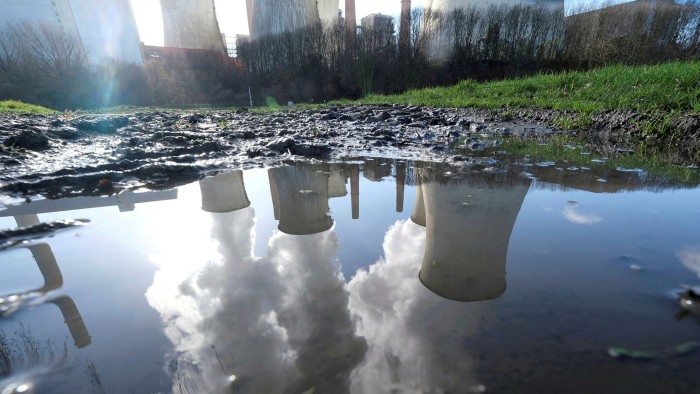Germany’s biggest power supplier warns against axing Russian imports

Roula Khalaf, Editor of the FT, selects her favourite stories in this weekly newsletter.
Germany’s biggest power supplier RWE has warned against halting Russian energy imports to put pressure on Moscow, saying it would hurt German households and lead to lasting damage for industry in Europe’s largest economy.
“I understand very well the calls to extend the sanctions to the maximum. After all, the aim is to support Ukraine by weakening Russia’s leadership to the greatest degree possible,” said Markus Krebber, chief executive of RWE.
“However, we must unfortunately also acknowledge that there is a strong dependence on Russia, especially in energy supply, in Europe and in particular in Germany.”
He added that “an immediate stop would have unimaginable consequences for the heating supply of households”, while “a prolonged supply interruption would probably cause lasting damage to the production facilities of industry and small and medium-sized enterprises”.
Germany relies on Russia for more than half its natural gas, and Chancellor Olaf Scholz has pledged to diversify the country’s supply in the wake of the invasion of Ukraine. Although gas flows from Russia are continuing at normal levels, Moscow has threatened to cut supplies to Europe as a response to sanctions imposed on the country because of the invasion.
RWE said it supported the German government’s efforts to reduce dependence on Russian oil and gas and could revive as much as 3.5GW of coal-power capacity if requested.
It said British coal plants, however, could not be resurrected as they were already being demolished. Kreber added that RWE was in “constant dialogue” with the UK government, where there was “an ongoing discussion” to accelerate renewables, particularly wind farms where the “focus should be on offshore”.
Germany’s three nuclear power stations — one of which is run by RWE — are due to close by the end of this year but Berlin has ruled out extending their lifespan to help cut the country’s reliance on Russian gas.
Scholz has pledged to accelerate the construction of liquid natural gas terminals, which would make the country less dependent on supplies from Russia.
RWE said a memorandum of understanding for such a project in Brunsbüttel, north of Hamburg, was signed “just a few days ago” and that the company was “working flat out to be able to start operations as soon as possible”.
Some of Europe’s biggest energy companies, including oil supermajors Shell and BP, have announced plans to exit their business interests in Russia, although completely disconnecting from energy deals may take some time.
Both RWE and domestic rival Uniper SE have said they will not sign new long-term contracts with Russia but will continue to receive fuel under existing deals.
RWE said it would end all non-energy business with Russian companies with immediate effect.
Krebber said that “even though security of supply is the centre of attention at the moment, the medium- and long-term vision for energy policy remains unchanged”, insisting: “Expanding renewables and ramping up the hydrogen economy are more important than ever.”
Activist investor Enkraft Capital, which built a small stake in RWE last year, accused the company of being insufficiently ambitious in its decarbonisation plans, however.
“[War] seems to be yet another reason for RWE to wait for the government to take action rather than implementing a compelling forward-looking strategy that would benefit the company and Germany,” said Benedikt Kormaier, managing director at Enkraft.
Twice weekly newsletter
Energy is the world’s indispensable business and Energy Source is its newsletter. Every Tuesday and Thursday, direct to your inbox, Energy Source brings you essential news, forward-thinking analysis and insider intelligence. Sign up here.
Comments